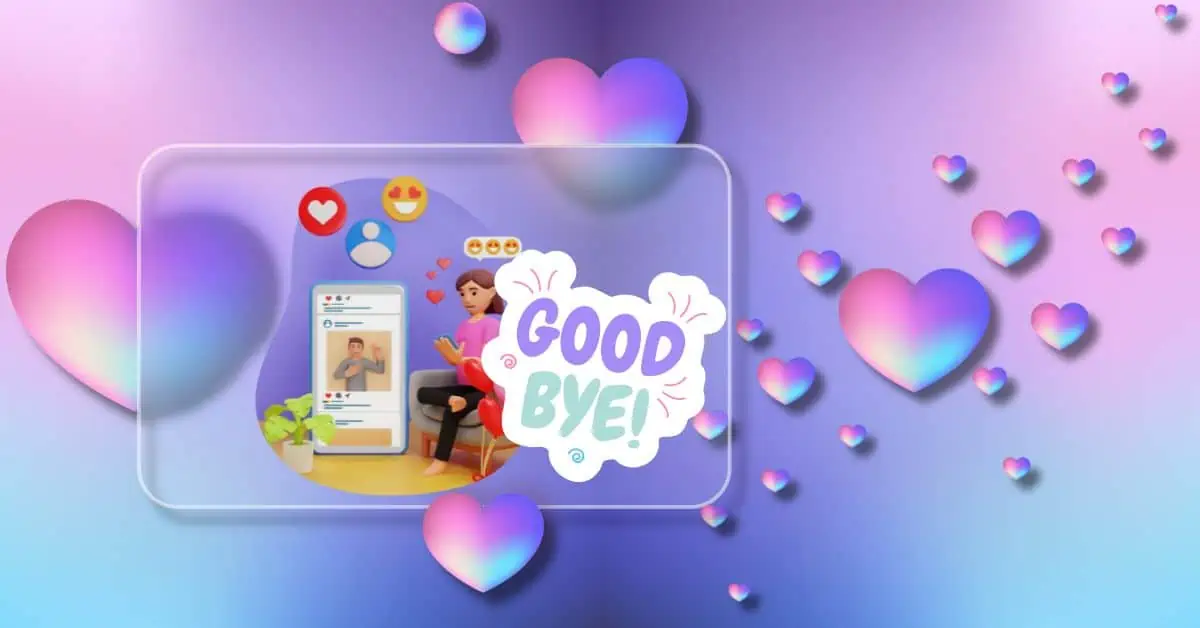For over a decade, a huge majority of singles looking for love have been using dating apps to search for a partner. Countless swipes and DMs led to first dates and serious relationships, and it was the future of dating. People had fun doing it and suddenly had a huge pool of potential partners at their fingertips.
But recently, the younger generations, particularly Gen Zers, are jumping ship. Once a beacon of hope, the light has dimmed when it comes to dating apps.
Threads on Reddit are littered with complaints about the platforms—people are posting things like “FACEBOOK DATING IS all old people. Raya is full of posturing. Hinge, which bills itself as the ‘dating app designed to be deleted,’ hides the most attractive members behind a $50 monthly paywall,” according to Wired.
And when it comes to Tinder, the platform that pretty much started it all with the swipe, it “Has become the dating air, or maybe the pollution, we all breathe,” writer Allison P. Davis said last year in The Cut, reflecting on the Sisyphean level of challenges modern dating poses for singles searching for connection.
A recent study by Axios and Generation Lab shows that college students are experiencing a major disillusion with dating apps. The majority, 79 percent, are choosing to connect in person instead of using these apps. This trend appears to go against the natural order, given Gen Z’s proficiency and love of online expression on other social media platforms.
“Dating apps promised a quick fix to the messiness of love,” says Carolina Bandinelli, a University of Warwick professor specializing in research on the digital culture of love. “Their promotional narratives spoke about reducing love to a simple procedure. Dating apps promised a love that ‘works.’ But they do not ‘work’ as they are supposed to, yet they create the expectation of love as an efficient business. Users get frustrated with this.”
Online dating is always changing, and the culture could shift again. But for now, a lot of young people are going back to old-fashioned ways of dating instead of using dating apps.
The online dating sector has grown into a multi-billion-dollar industry. Between 2016 and 2021, worldwide subscriptions for dating apps soared by 81 percent. Despite a saturated market and a recent slowdown in user growth, experts anticipate that companies will shift their focus to increasing revenue through various means. This strategy could worsen the user experience, which many already consider to be dismal.
The present backlash against technology stems from the climate created by dating apps in the last ten years. According to Bandinelli, we’re moving towards an era she calls ‘post-romantic love’ in our digital world. This era is marked by conveniences like dating apps that are reshaping the ethical codes of love with the objective of building a notion of love deprived of pain, loss, and negative emotions.”
In this new kind of love, if we can even call it love, the real-life feelings and adventures of dating—the good and bad parts—are turned into impersonal, robot-like exchanges.
“With new technologies, there is always a period in which they seem to take over what was in place before,” Bandinelli says of the shift. “Then there is a counterforce, and people want to retrieve what seems to have been lost.”
The Numbers
The Axios + Generation Lab Student Poll study, conducted in October 2023, surveyed 978 college students to get their views on dating. The study acknowledges college as a period often associated with independence and experimentation in dating and romantic relationships.
But it questions whether this perception is consistent with the actual experiences of modern college students—the study considers the influence of changes in cultural beliefs, advancements in technology, and the enduring effects of the pandemic on romantic relationships at various life stages. The goal was to understand how these factors shape the dating beliefs and behaviors of college students in 2023.
To accomplish this, Generation Lab and Axios gathered insights from students across the country about their dating experiences and beliefs.
The study reveals several key insights into college students’ dating habits and preferences in 2023:

- More than half of the respondents are currently in a relationship.
- A significant majority, 61%, have been on a date within the past three months.
- Almost half of the students surveyed do not engage in hookup culture.
- The majority of respondents are not actively using dating apps.
- Personality is considered more important than physical appearance by the students.
- 17% of the respondents have yet to be in a committed relationship.
- Over half of the relationships reported began through in-person connections, highlighting the enduring importance of physical interactions in forming romantic relationships.
Dating Apps Need to Adapt, But How?
To adapt and stay relevant in light of the trend of college students moving away from dating apps in droves, platforms will need to put into place some new strategies:

Focus on Relationship Building: Emphasize features that promote genuine connections and long-term relationships rather than just casual encounters.

Improve Safety and Trust: Enhance safety measures and verification processes to build trust among users, addressing concerns about fake profiles and privacy.

Diversify Ways to Connect: Offer more diverse ways to connect, such as video chats, group hangouts, or events, to mimic natural social interactions.

Personalize User Experience: Utilize advanced algorithms for better matchmaking based on interests, values, and personality traits, not just physical appearance.

Promote In-Person Interactions: Encourage and facilitate more in-person meetups by partnering with local venues or organizing events.

Improve User Interface and Experience: Create a more engaging and user-friendly interface that enhances the overall user experience.

Community Building: Create a community within the app through shared interests, forums, or social groups.

Feedback and Improvement: Ask for user feedback to understand changing preferences and actually make the changes users are asking for!

Mental Health Awareness: Incorporate features that promote mental well-being, considering the impact of dating apps on self-esteem and mental health.

Marketing and Communication: Tweak marketing strategies to align with Gen Z’s needs and preferences, highlighting things that are important to them, like diversity and inclusivity.
By putting into place specific strategies, the best dating apps can become more attuned to the ever-evolving preferences and needs of younger generations.
If they don’t, this demo leaves them in the dust, which could spell disaster for their bottom lines.
Want to get young daters back on platforms? Listening to what they are asking for is the first big step in getting them to log on!
